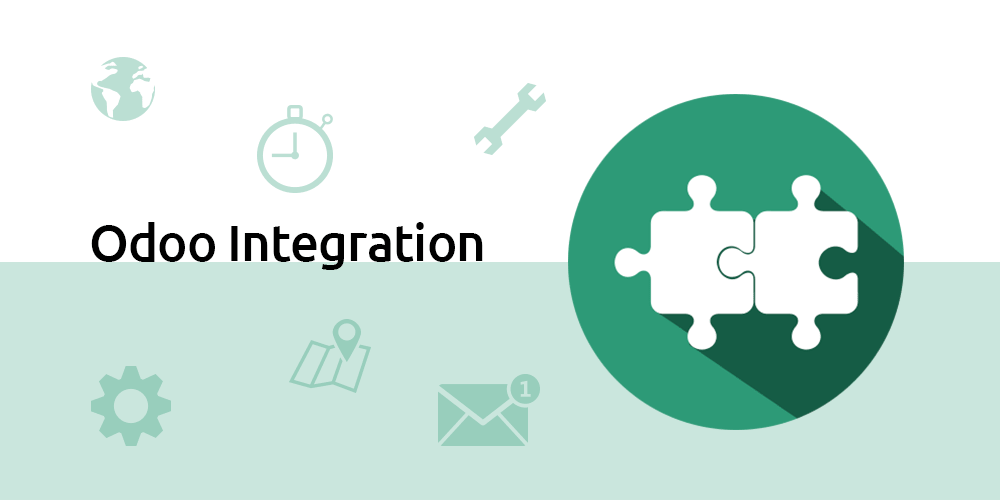In an increasingly interconnected business landscape, the ability to synchronize and optimize operations across different software applications is paramount for organizational success. Odoo, a versatile and comprehensive business management platform, empowers businesses with tools to manage various aspects of their operations. Odoo integration services have emerged as a crucial element in enhancing efficiency, reducing manual tasks, and ensuring a unified data flow across different systems. In this detailed article, we delve into the world of Odoo integration services, exploring their significance, benefits, integration possibilities, implementation process, and real-world applications.
The Significance of Odoo Integration Services
Odoo integration services are instrumental in unifying disparate systems within an organization, streamlining processes, and enabling data synchronization. By seamlessly connecting Odoo with other applications and platforms, businesses can eliminate data silos, automate workflows, and gain actionable insights from a holistic view of their operations. This integration-driven approach fosters enhanced collaboration, improved decision-making, and ultimately drives greater efficiency across the entire organization.
Key Benefits of Odoo Integration Services
- Enhanced Efficiency: Integration services automate data exchange between systems, reducing manual data entry and minimizing errors while optimizing business processes.
- Real-time Data Access: Integrated systems provide real-time data access, enabling teams to make informed decisions based on up-to-date information.
- Improved Customer Experience: Integrated systems allow for a comprehensive view of customer interactions, leading to personalized experiences and better customer service.
- Cost Savings: Automation and efficiency gains from integrations result in reduced operational costs, increased productivity, and optimized resource allocation.
- Scalability: Integration sets the foundation for scalable growth by ensuring systems can seamlessly communicate and adapt to evolving business needs.
Integration Possibilities with Odoo
- E-commerce Integration: Seamlessly connect Odoo with e-commerce platforms to synchronize product data, inventory levels, orders, and customer information.
- CRM Integration: Integrate Odoo’s CRM module with marketing automation, helpdesk, and sales tools to create a unified customer relationship management system.
- Accounting and Finance Integration: Link Odoo with accounting software to automate financial data transfer, streamline invoicing, and facilitate accurate financial reporting.
- Inventory and Supply Chain Integration: Connect Odoo with inventory management systems to optimize stock levels, order processing, and supply chain logistics.
- Human Resources Integration: Integrate Odoo’s HR module with payroll and time-tracking systems for streamlined employee data management and payroll processing.
Implementation Process of Odoo Integration Services
- Requirement Analysis: Identify integration goals, define data mapping requirements, and determine key performance indicators (KPIs) for the integration project.
- Choose Integration Tools: Select appropriate integration tools, middleware, APIs, or connectors based on the systems being integrated and the desired data flow.
- Data Mapping and Transformation: Define data mapping rules and transformations to ensure seamless data exchange and compatibility between systems.
- Development and Testing: Develop custom integrations or leverage pre-built connectors, followed by thorough testing to validate data accuracy and system functionality.
- Deployment and Monitoring: Deploy the integrations into the live environment, monitor data flow, and conduct regular performance assessments to ensure optimal functionality.
Real-World Applications
- E-commerce Enterprises: Odoo integration services enable e-commerce businesses to automate order processing, inventory management, and customer data synchronization.
- Manufacturing Industries: Integration optimizes production planning, inventory management, and sales by connecting Odoo with production and sales systems.
- Service-Oriented Businesses: Businesses offering services benefit from integrating Odoo with CRM, project management, and billing systems for streamlined operations.
- Retail Ventures: Integration of Odoo with point-of-sale (POS) systems and e-commerce platforms ensures consistent inventory and sales data across channels.
Conclusion
Odoo integration services have evolved into a strategic necessity for modern businesses aiming to achieve streamlined operations, data accuracy, and enhanced collaboration. By seamlessly connecting Odoo with other systems, organizations can unlock the full potential of their business management platform. From e-commerce to manufacturing, Odoo integration services provide tailored solutions that bridge gaps, automate workflows, and optimize data exchange. In an era of digital transformation, Odoo integration services become the cornerstone for fostering efficiency, driving growth, and ensuring competitive advantage. As businesses continue to evolve and expand, Odoo integration services remain an indispensable tool for unifying operations, enhancing decision-making, and propelling success in the dynamic business landscape.









































